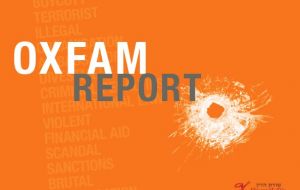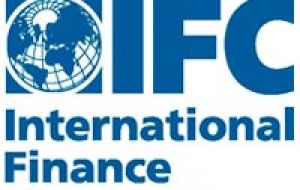MercoPress. South Atlantic News Agency
Companies with World Bank credits in Africa are linked to tax havens, claims Oxfam
 The Oxfam report showed that World Bank’s private lending arm lent money to 68 companies in 2015 for investments in Africa, 51 of the 68 companies use tax havens
The Oxfam report showed that World Bank’s private lending arm lent money to 68 companies in 2015 for investments in Africa, 51 of the 68 companies use tax havens  The percentage of private sector clients with tax haven presence that were involved in the IFC’s projects has risen from 46% in 2010, to 75% in 2015
The percentage of private sector clients with tax haven presence that were involved in the IFC’s projects has risen from 46% in 2010, to 75% in 2015 A report by the civil society network Oxfam has found, about 84% of the dollars invested in sub-Saharan Africa in 2015 by the International Finance Corporation (IFC), the private sector arm of the World Bank Group, went to companies with presence in at least one tax haven.
The report by the group showed that while the World Bank’s private lending arm lent money to 68 companies in 2015 for investments in Africa, 51 of the 68 companies use tax havens that have no apparent link to their core business.
The IFC’s portfolio for sub-Saharan Africa in 2015 was 68 projects with a total value of US$3.4 billion and 91% of that is linked with multinational corporations. Of this amount, US$2.878 billion was associated with tax havens through the IFC’s clients.
Oxfam expressed worry with this development and the tax avoidance implications on countries’ domestic resource mobilization for achieving the World Bank’s twin goals of eliminating poverty and boosting shared prosperity.
Unfortunately, Oxfam’s report also showed that the exposure of the IFC’s investments in sub-Saharan Africa to tax havens has risen considerably compared with 2010.
The percentage of private sector clients with tax haven presence that were involved in the IFC’s projects has risen from 46% in 2010, to 75% in 2015. In 2010, there were 31 of such companies out of a total of 67, whereas in 2015, the number of companies in IFC projects who are linked to tax havens, rose to 51 out of 68.
Oxfam found Mauritius to be the most preferred tax haven, with 40% of the IFC’s projects involving companies linked to the offshore financial centre. The group wants the World Bank to ensure that its clients are paying their fare share of taxes.
The group said while the use of tax havens is not illegal, the IFC as an organization operating with public funding, should be fully committed to distinguishing when the use of tax havens is for real and necessary economic business purposes and not simply artificial structures to avoid tax.




Top Comments
Disclaimer & comment rulesCommenting for this story is now closed.
If you have a Facebook account, become a fan and comment on our Facebook Page!